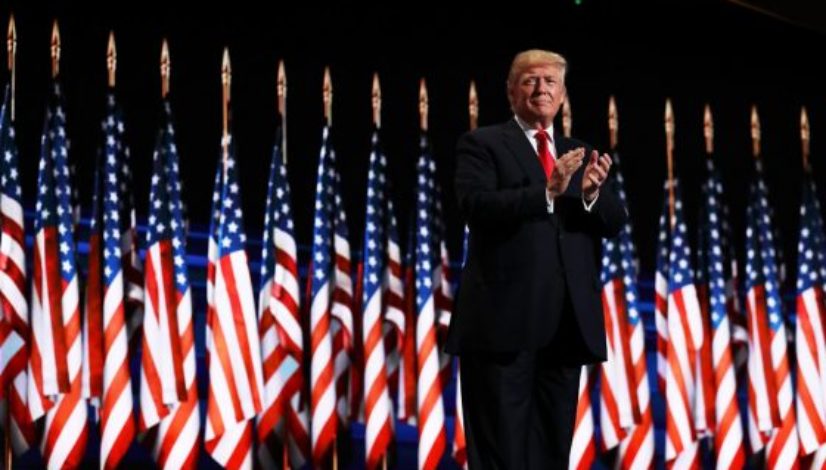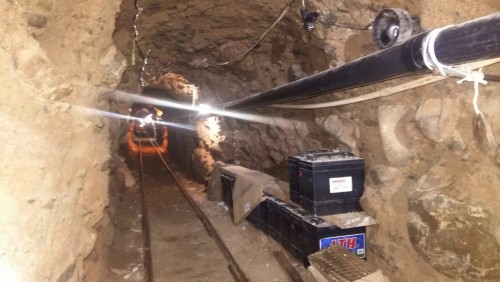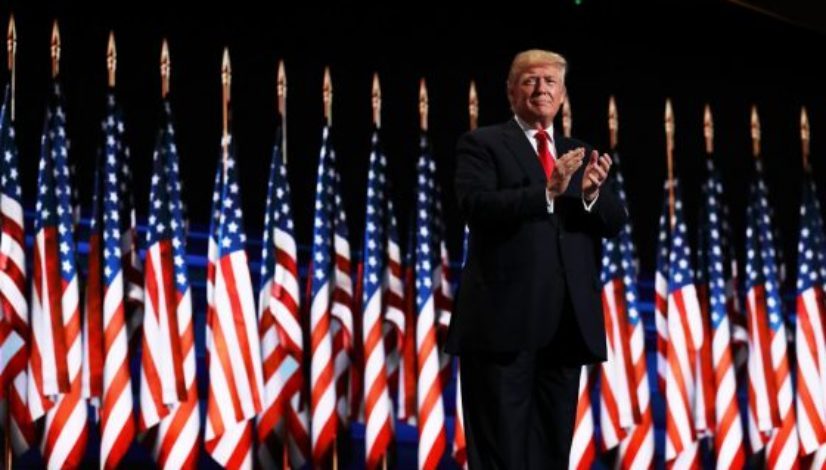Donald Trump says U.S. needs a border wall to keep drugs out. Is he right?

Published: Jul 22, 2016, 12:44 pm • Updated: Sep 1, 2017, 2:29 pm
By Ricardo Baca, The Cannabist Staff
About two-thirds of the way through Donald Trump’s most recent speech — the big one he gave in Cleveland as he accepted the Republican nomination for the presidential election — he turned to one of his favorite subjects, also the title of Pink Floyd’s fourth-best album: The Wall.
“We are going to build a great border wall,” Trump began on Thursday night.
Trump is desperate to build a wall along the 1,954-mile U.S.-Mexico border — this much we know. Trump has said that “building a wall is easy, and it can be done inexpensively. It’s not even a difficult project if you know what you’re doing.” Meanwhile experts and government officials say it would be “virtually impossible” to completely secure the entire U.S.-Mexico border with an impenetrable wall.
Election 2016
Definitive guide to marijuana on the 2016 ballot: Which states will be voting on recreational and medical marijuana initiatives in November?
Election news: This is a pivotal year for political pot. Stay caught up
Weed news and interviews: Get podcasts of The Cannabist Show.
Subscribe to our newsletter here.
Watch The Cannabist Show.
Peruse our Cannabist-themed merchandise (T’s, hats, hoodies) at Cannabist Shop.
But Trump isn’t letting expert analyses get in the way of his plans. America needs the wall, Trump says, and he is going to reference the reasons for such a wall each time he broaches the controversial subject — though stopping illegal immigration has always been his No. 1 justification for wall-building.
Now Trump is bringing drugs into the conversation, saying the wall will stop Mexican drugs from crossing into the United States.
“We are going to build a great border wall,” Trump said Thursday, “to stop illegal immigration, to stop the gangs and the violence, and to stop the drugs from pouring into our communities.”
But would Trump’s wall actually prevent drugs from crossing into the country?
Even if a wall is eventually built, what about the drug tunnels dug under the border — like those discovered in October 2015, March 2016 and April 2016 — as well as those yet to be found by authorities? What about the boats and aircraft smuggling illicit drugs into the U.S. by sea and by air, more than $15 billion of which was caught by U.S. Customs & Border Protection’s Air and Marine Operations crews in 2014 and 2015 alone? And while CBP officials working existing border crossings are seizing a lot of drugs disguised as coconuts, carrots and mattresses, they’re also missing some — a trend that will inevitably continue with or without the wall.
A certain amount of drug trafficking will always exist in the southwestern United States, but U.S. Border Patrol data show that “marijuana seizures along the southwest border tumbled to their lowest level in at least a decade,” The Washington Post reported earlier this year. “Agents snagged roughly 1.5 million pounds of marijuana at the border, down from a peak of nearly 4 million pounds in 2009. … The DEA has even found evidence that the flow of illegal marijuana is starting to reverse, with some cases of U.S. marijuana being smuggled into Mexico.”
 A light shines in an underground tunnel that police say was built to smuggle drugs from Tijuana, Mexico into California in this Oct. 21, 2015 photo released by Mexico’s Federal Police. Authorities said the tunnel extends about 2,600 feet and is lit, ventilated, equipped with a rail car system, and lined with metal beams to prevent collapse. (Mexico Federal Police via The Associated Press)
A light shines in an underground tunnel that police say was built to smuggle drugs from Tijuana, Mexico into California in this Oct. 21, 2015 photo released by Mexico’s Federal Police. Authorities said the tunnel extends about 2,600 feet and is lit, ventilated, equipped with a rail car system, and lined with metal beams to prevent collapse. (Mexico Federal Police via The Associated Press)
Another compelling statistic: The number of arrests in the U.S. linked to foreign-grown pot dropped by almost half from 2010 to 2014, when Colorado and Washington began their legal retail cannabis sales and amid the explosive growth of California’s unregulated medical marijuana market, The Los Angeles Times reported.
Marijuana crimes south of the border are also trending the right direction. As The Times reported, “The Mexican government is on pace to eradicate about 12,000 acres this year, down from more than 44,000 in 2010, according to the Mexican attorney general’s office.”
Sure enough, there are plenty of stories documenting the pinch being felt by Mexican marijuana farmers.
“It’s not worth it anymore,” said Rodrigo Silla, 50, a lifelong cannabis farmer who couldn’t remember the last time his family and others in their tiny hamlet gave up growing mota, as The Washington Post reported in 2014. “I wish the Americans would stop with this legalization.”
A 24-year-old pot grower in the northwestern Mexican state of Sinaloa named Nabor told NPR in 2014: “Two or three years ago, a kilogram (2.2 pounds) of marijuana was worth $60 to $90. But now they’re paying us $30 to $40 a kilo. It’s a big difference. If the U.S. continues to legalize pot, they’ll run us into the ground.”
Mexico marijuana
Gourmet ganja: In Mexico, new demand for ‘the good stuff’ grown in U.S., Europe
Closer look: More news on Mexico drug law reform
Follow The Cannabist on Twitter and Facebook
And it’s not only cannabis. Drug seizures in general are down along the U.S.-Mexico border.
In fiscal year 2014, CBP seized 2,366,639 pounds of drugs along the southwest U.S.-Mexico border. In fiscal year 2015, CBP seized 2,137,428 pounds of drugs along the southwest border — a year-over-year drop of nearly 10 percent.
Drug trafficking will remain a primary concern at the U.S.-Mexico border for the foreseeable future. But given cartels’ ingenuity in the air, on the water, underground and at traditional border crossings, you have to wonder if Trump’s wall will be as successful at stopping “the drugs from pouring into our communities” as progressive drug laws have already proven to be.
Topics: border, donald trump, election 2016, Mexico, Mexico-U.S. border, smuggling, u.s. customs and border protection  Ricardo Baca
Ricardo Baca
Ricardo Baca is a contributing editor for The Cannabist. He was appointed The Denver Post’s first marijuana editor in November 2013 and spearheaded the formation of The Cannabist, a division of the Post. Fortune magazine ranked Baca as one of the…




